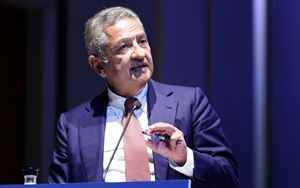(Tiper Stock Exchange) – For Italy, the ECB’s monetary tightening does not represent a source of risk: “Italian fiscal policy has remained prudent” and with an average duration of government bonds, together with the investments of the NextGenerationEU programme, to revive growth, “it is difficult to imagine a country risk if one follows this path”. She said it Fabio Panetta, mmember of the Directorate of the European Central Bank, in an interview with the Handelsblatt in which he underlined that the ECB was right to raise rates again in December, but “any unconditional indication – i.e. unrelated to the prospective evolution of the economy – which goes beyond February would deviate from our data-based approach”.
“Our decisions in December – explained Panetta – were based on the economic projections available at the time. In March we will have new ones and we will have to reevaluate the situation”. The ECB must indeed be predictable to the markets, but without “unconditional indications. In the current circumstances, it is not necessary to announce the path of official rates over an extended time horizon or without a close reference to data. Monetary policy announcements over a long period of time were carried out in the past: we called it forward guidance.But in that phase monetary policy operated under very different conditions – Panetta argues -: interest rates had fallen to the lower limit, and the central bank could only act by influencing expectations about future interest rates, committing itself to keeping official rates low for a long time. Today we find ourselves in the opposite situation. We are fighting inflation that is too high, and we can do this by raising rates to the level needed to bring inflation back to our 2 percent target.”
“Furthermore, the economy today is characterized by too much uncertainty so that we can commit unconditionally and for a long time to follow a specific rate path”. The central banker points out that “there is uncertainty about the outcome of the war, about the prices of energy and food raw materials and their impact on retail prices, reopening of the economy and its effects on supply chains, on the performance of the global economy and on the impact of these developments on productive capacity”. The performance of the economy will therefore determine the next moves. “Based on this evaluation – concludes Panetta – will decide whether a greater or lesser monetary restriction than that indicated in December will be necessary. We shouldn’t be surprised if investors revise their expectations about the future path of interest rates when new data emerges. Instead, we need to clearly explain how we interpret that data.”
